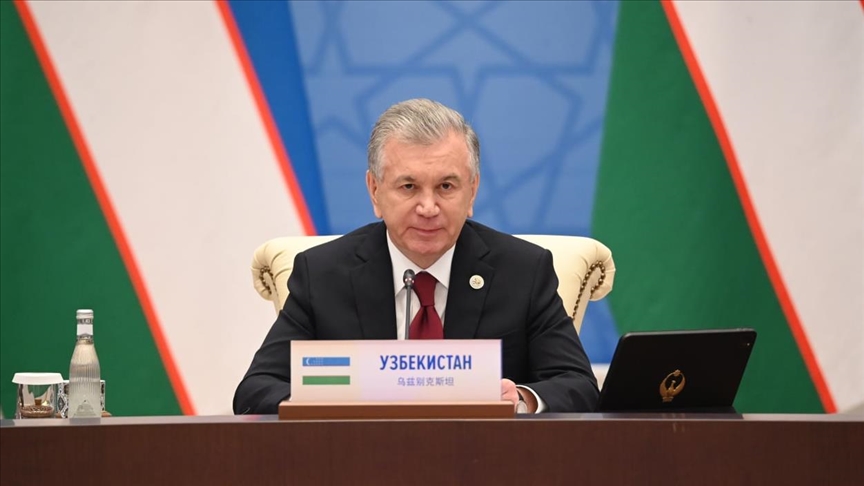ISTANBUL
Uzbek President Shavkat Mirziyoyev on Thursday highlighted issues of developing countries during an address via videoconferencing at the Voice of Global South Summit, a virtual summit hosted by India involving countries of Latin America, Asia, Africa, and Oceania.
“In accordance with the agenda, issues of human-centered sustainable development were discussed, views and concrete proposals were exchanged on deepening mutually beneficial cooperation in order to promote the interests and solve pressing problems of developing countries, including in the areas of economy, ecology, energy and food security, health care, human resource development, innovation, tourism and other areas,” a statement by the Uzbek presidency read.
The statement said Mirziyoyev assessed current trends in the development of the international situation and shared his vision of the priority tasks faced by developing countries.
“Today, the world community is facing the negative consequences of various contradictions and conflicts, the economic crisis. We are witnessing a reduction in open dialogue and mutual trust in international relations,” Mirziyoyev said, noting the importance of further improvement of the international trade system taking into account the Global South.
“It is necessary to create conditions for realizing the potential of developing countries, which still face various obstacles and restrictions when entering new markets,” Mirziyoyev also said.
The statement further noted that the issues of ensuring energy and food security, the formation of a global logistics network and value chains, and the promotion of attracting investment and advanced technologies to developing countries were included in the discussions.
It also said another strategic issue is the promotion of a project to build a railway through Afghanistan with access to the Indian Ocean, aimed at strengthening the interconnectedness between Central and South Asia, under the International North–South Transport Corridor, which runs between India on one end and Europe and Central Asia on the other.
“The analysis also shows that in the context of the transition to a ‘green economy’ between developed and developing countries, the technological gap is increasing. In this regard, it was proposed to create an information bank of green technologies and innovations for the ‘Global South’ with the support of the leading countries of the world,” it added.

